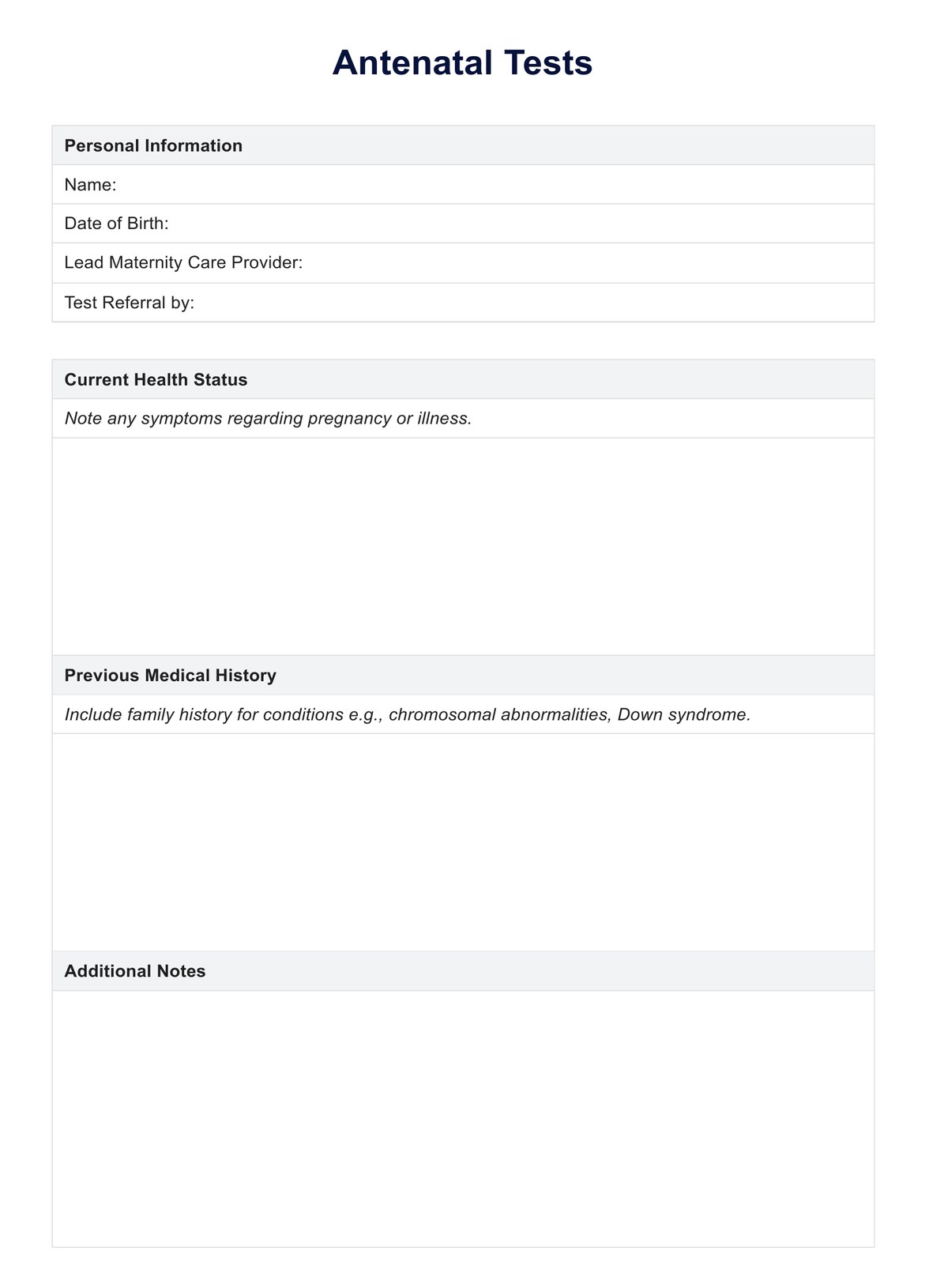What is an Antenatal Test?
Antenatal tests (or prenatal tests) are assessments designed to protect the health of pregnant women and their babies throughout pregnancy. Though there are various tests that serve different purposes, these are all important prenatal procedures for determining risk factors for certain conditions or birth defects, as well as monitoring fetal growth, and the health of the mother.
The three types of antenatal tests that one can expect are blood tests, urine tests, and ultrasound scan tests. Different tests are completed throughout pregnancy, with some being first-trimester screening tests, and others completed in the later weeks of pregnancy. Though all of the tests are important, only some of them are recommended for all pregnancies, as these serve as screening tests to detect any risks to the woman or baby's health.
Additional testing is typically recommended upon referral following screening results, or for women who have a family history of medical problems or genetic disorders. In this instance, health practitioners may recommend further diagnostic testing to determine whether the unborn baby may experience health problems in the future. These may include Chorionic Villus Sampling (CVS) in response to high risks of chromosomal abnormalities for Down's syndrome.
It can be understandably overwhelming to navigate these tests during pregnancy, given that all the tests have different procedures or results associated with them. To help support healthcare practitioners and women during pregnancy, we have developed an Antenatal Test resource. This resource outlines all of the tests that may be available from early stages at the first antenatal visit, to recommended tests for the later weeks of pregnancy.
Using this resource can also help health practitioners devise an effective prenatal care plan, structuring each antenatal visit with relevant screening test procedures, test results, and tailored advice to support the individual.












